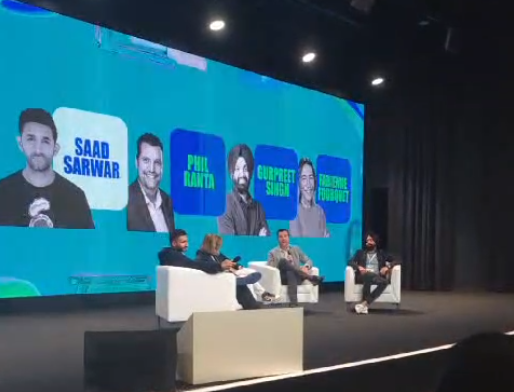Back in January, I hosted a panel at the Billion Followers Summit. I was asked to moderate a chat on the topic of What’s the future of creator funding? I was fortunate to have a vocal and opinionated panel of experts: Phil Ranta, Gurpreet Singh and Fabienne Fourquet. Prior to this panel, I followed Phil on LinkedIn and messaged him years before I started working in the creator space. I highly recommend you follow him, Gurpreet and Fabienne on LinkedIn.
Whilst we had a very short time to discuss a topic so broad, I’ve since seen some developments in the creator economy in the Middle East that are pertinent to that panel in January. To understand your revenue and funding opportunities as a creator in the Middle East, you have to ask yourself whether you’re an influencer or a content creator?
Prior to the proliferation of social media platforms, fans engaged with their favourite celebrities from a distance; watched them in movies, listened to their music and got a little more up close and personal with them through Paparazzi, leaks and events. Celebrities didn’t control direct access or own access to their audience. Record Labels, Movie/TV Studios, etc did. Becoming a mainstream celebrity was more valued because there was an incredibly steep barrier to entry. Maintaining celebrity status relied on hit movies, award-winning music, record-setting sports achievements, etc. You couldn’t do it alone. You had to have undeniable influence to stay on top.
Today, budding digital creators just need a phone and internet access to attain influence. With the barrier to entry reduced because of social media platforms, the term influencer was coined. It was a way to separate the mainstream celebrity from their digital-native counterparts. You could attain influence by sharing photos of yourself, vlogging and creating content all by yourself; no agent, no studio, no record deal. Create a free YouTube, IG, TikTok, Snap, Vine (rip) account and you’re good to go.
I believe the evolution of the influencer is the content creator. Content creators combine a higher barrier to entry skill (story-telling, curation, production) with influence. How do you know which is which? A key difference between an influencer and a content creator is in their goals: Influencer’s seek to grow their followers (Quantity). Content creators seek to grow their audience but focus on increasing engagement (Quality).
Sharing a photo of yourself on vacation = Influencer
Crafting a 20 minute video about how you went on vacation with $100 budget= Content Creator
Influencing is arguably a great deal easier than creating engaging content.
How does this play out in the Middle East?
You see the Arab world understands influence at a deep, cultural level. As a region dominated by one religion, there has always been a reverence paid to those with great Islamic knowledge who are able to eloquently communicate to the masses. Within the religion of Islam, there are schools of thought that originated with an Islamic leader or scholar. They influenced and inspired through their teachings. Today, some of the most recognised Islamic influencers have become content creators. They engage with their audience by creating content (YouTube, Spotify and more), hosting live events, Encouraging audience Q&A’s, attending Expo’s, writing books, and more. As Muslim Influencers shift to becoming content creators, this accelerates the regions acceptance and understanding of content in a way that has never happened before.
The infrastructure and culture has traditionally rewarded influence over content creation. But that’s changing. Whilst the Middle East is currently predominantly made up of influencers seeking to strengthen their influence, content creators are already dominating watch time across the region. Content creators are in short, short supply right now but have the benefit of learning from the same influencer -> content creator shift that happened in the US over the last 10 years.
The Middle East creator economy will experience seismic change over the next 5 years. The Arab World has an influencer problem but a content creator opportunity. If you’re an influencer, you need people who want to pay you for your influence. That’s ultimately how you monetise. If you’re a content creator, you create your own business ventures and leverage your engaged audience to build what you love for those who love you.
If you’re willing to pair your ability to create content with traditional influence.. now is the time.

